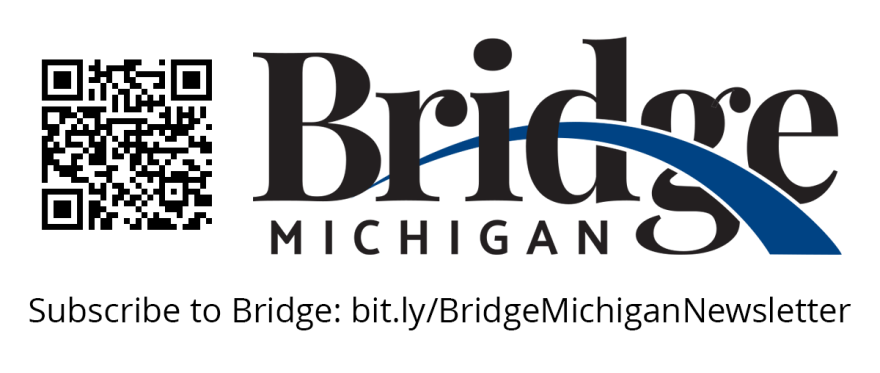This story was originally published by Bridge Michigan, a nonprofit and nonpartisan news organization. To get regular coverage from Bridge Michigan, sign up for a free Bridge Michigan newsletter here.
Open enrollment starts Saturday, and Michigan health insurance regulators are confirming what many had long been fearful of — prices are going up for individuals who buy insurance on the Affordable Care Act marketplace, and for people who work for small companies offering ACA-compliant plans. Plus, some providers are dropping coverage in Michigan altogether.
Prices are also rising for those who get their insurance through large employers, with analysts expecting some of the biggest increases seen in 15 years.
The Michigan Department of Insurance and Financial Services released the approved ACA rates for 2026 on Friday, after approving 20 filings and issuing no denials.
How much are individual rates rising?
Monthly premiums for plans on the individual ACA marketplace are going up 20.2% on average. The increase represents an uptick of 3.4 points from the insurers’ initial proposals submitted earlier this summer.
Blue Cross Blue Shield of Michigan and Blue Care Network plans will see a 24% and 23% increase respectively. Collectively, the plans cover about 153,000 people today.
Priority Health, with about 122,000 current enrollees, will go up 19.2%. Meridian Health Plan of Michigan will see a 16.9% increase with 156,000 active members.
Other rises include:
- UnitedHealthcare Community Plan – 25.8%
- McLaren Health Plan Community – 19.2%
- Oscar Insurance Co. – 9.3%
In total, nearly 533,000 Michiganders are represented by individual health insurance. Seventy-one percent of those plans will see increases of 15% or more.
What about the small group market?
ACA-compliant insurance plans offered by small businesses are going up 11.1% on average, generally in line with the requested rate hike.
Currently, 412,000 people are enrolled in Michigan health plans covering companies with fewer than 50 employees.
Here are the 2026 rate hikes for Michigan insurance providers:
- Alliance Health and Life Insurance Co. – 8.4%
- Blue Care Network –12.4%
- Blue Cross Blue Shield - 11.2%
- Health Alliance Plan (HAP) - 8.5%
- Paramount Care of Michigan – 16.2%
- Paramount Insurance Co. – 13.8%
- Priority Health – 9.8%
- Priority Health Insurance Co. (PHIC) – 7.0%
- UnitedHealthcare Community Plan – 14.8%
- UnitedHealthcare Insurance Co. – 15.0%
Of the 573 small group plans available, 39 will see rates increase 15% or more.
I work for a big employer, will my rates rise too?
Large business plans, which are usually exempt from state insurance mandates, are expecting to see a 6.5% increase on average — the most since 2010 — according to the global consulting firm Mercer.
Will I be able to renew my ACA coverage?
Possibly, but you have to check.
The state approved a total of 191 individual health care plans for 2026. That’s 31 fewer plans that were approved last year.
In Michigan, 116 plans will appear in the individual marketplace next year, compared to the 162 that were available in 2025.
Meridian, for instance, will have nine individual plans on the ACA marketplace during open enrollment, compared to the 17 plans it made available this time last year.
State regulators previously hinted that about 200,000 individuals may be unable to renew with their current insurer.
Who dropped out of the ACA marketplace?
Molina Healthcare of Michigan and HAP CareSource will not be available on the ACA individual market despite submitting requests to list their plans earlier this year, according to the state’s approved rate changes.
In total, the insurers cover about 54,400 people.
HAP CareSource withdrew from the individual market altogether before a final determination was made on rates, according to the Michigan Department of Insurance and Financial Services. Molina will offer just one off-market plan statewide.
What about those enhanced premium tax credits I’ve been hearing about?
The subsidies are set to expire at the end of the year as lawmakers remain deadlocked to extend them during the government shutdown.
Without a plan to renew, premium prices could cost much more than the rates previously outlined.
Payments in the US are expected to surge 114% on average without the enhanced premium tax credits, according to the health policy think tank KFF.
Check what your ACA enhanced premium tax credits might look like here
This article first appeared on Bridge Michigan and is republished here under a Creative Commons Attribution-NoDerivatives 4.0 International License.





